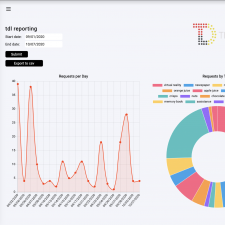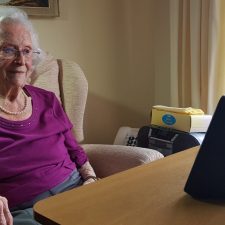AI Scans Could Keep Mums and Babies Safer – Many years ago I wrote a major article, working with a top medic, to squash a scare that was putting pregnant women off having scans.
The fear had been caused by a scientist bombarding rat cells with something that went way beyond what was used on unborn babies and on daytime TV he was scaring the hell out of pregnant women by making a link with cancer.
The biggest fear, however, was that avoiding scans meant serious and life-threatening situations were going undetected, conditions like placenta previa, which increases the risk of maternal and neonatal death.
Fortunately, that particular scare was eventually squashed but currently, there is a shortage of specialist sonographers, which means that ultrasound, can be used less widely than it should be.
Now, however, a pilot programme using artificial intelligence may eventually lead to scans being carried out by doctors and nurses in local surgeries.
MedaPhor Group plc’s ScanNav real-time image analysis software will be used at the Fetal Medicine Department of St George’s University Hospitals NHS Trust, in London.
ScanNav artificial intelligence system can carry out an automated, real-time peer review of obstetric ultrasound images as the patient is scanned.
Monitoring performance by manually auditing images retrospectively is very time consuming, but ScanNav supports clinical staff by instantly confirming that their saved images conform to a protocol, meaning additional images can be taken straight away if required.
Initially targeted at the UK pregnancy screening programme, with all women offered scans at 20 weeks of pregnancy, ScanNav evaluates over 50 individual criteria to verify that the six views required by the NHS Fetal Anomaly Screening Programme are complete and fit for purpose.
It uses deep learning technology to assess the same features that sonographers look for in ultrasound images, having learned this using over 350,000 images assessed by a panel of senior sonographers.
Initial studies have shown the AI system to be as good as having a second expert in the room during the scan.
Said Katy Cook, Lead Sonographer in St George’s Hospital Fetal Medicine Department: “Newly qualified sonographers, or those in training, may find this particularly helpful, giving confidence and enhancing skills to attain excellent imaging techniques. This AI software could also potentially automate the required auditing for obstetric scanning and demonstrate quality and competency for every sonographer in a busy clinical setting. This new way of assessing images looks very interesting and could have great potential.”
Nick Sleep, Chief Technology Officer of MedaPhor, said: “Understanding how ScanNav is utilised by expert sonographers in a clinical environment is helping us to better determine how our proposed range of ScanNav products will fit into the workflow of a busy fetal medicine department and support sonographers and doctors in ultrasound scanning.”
Just another way that AI could be used to protect us.
PM
Tags: A.I., Future Technologies, Health

 Share On Facebook
Share On Facebook Tweet It
Tweet It


















